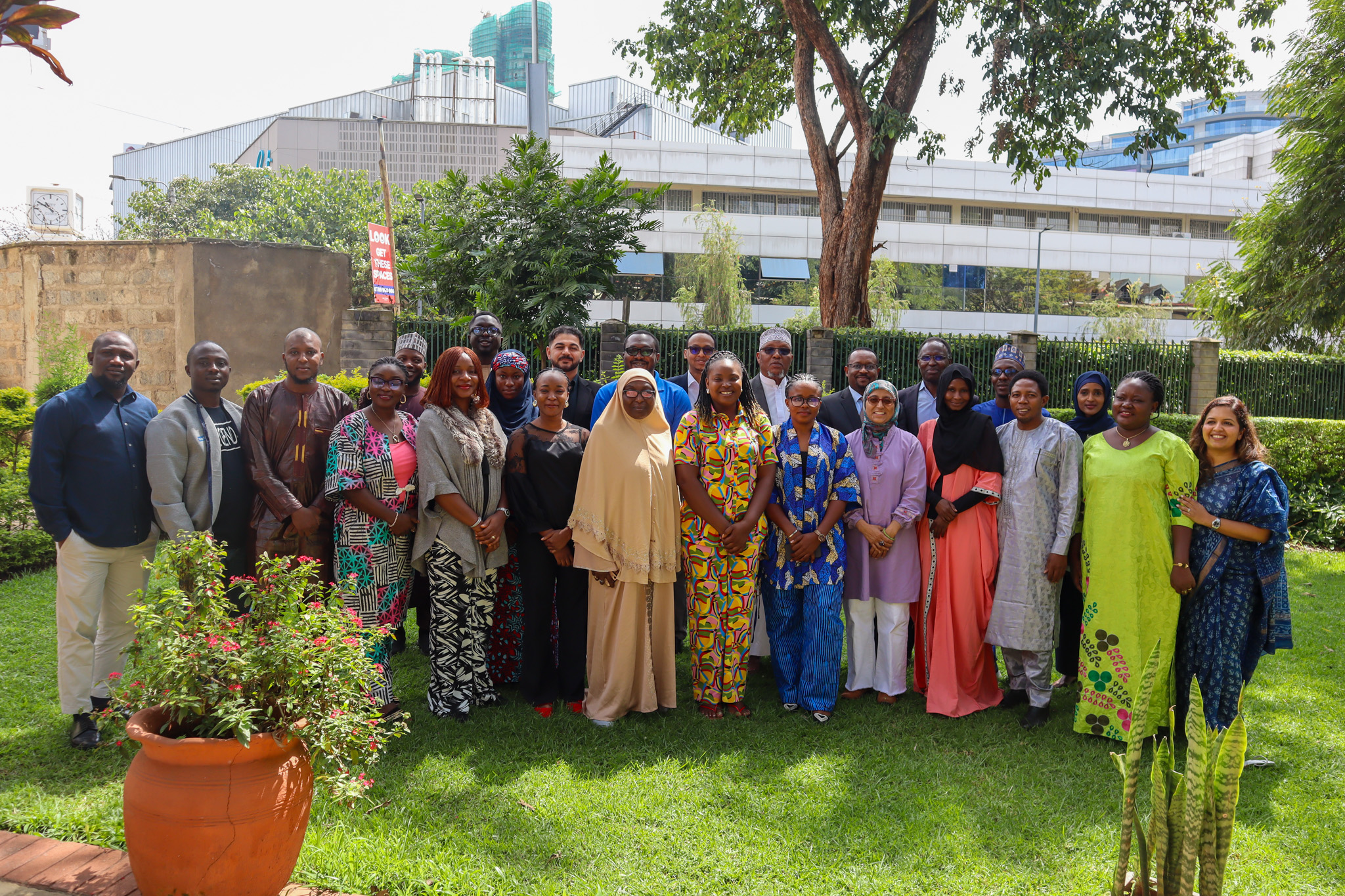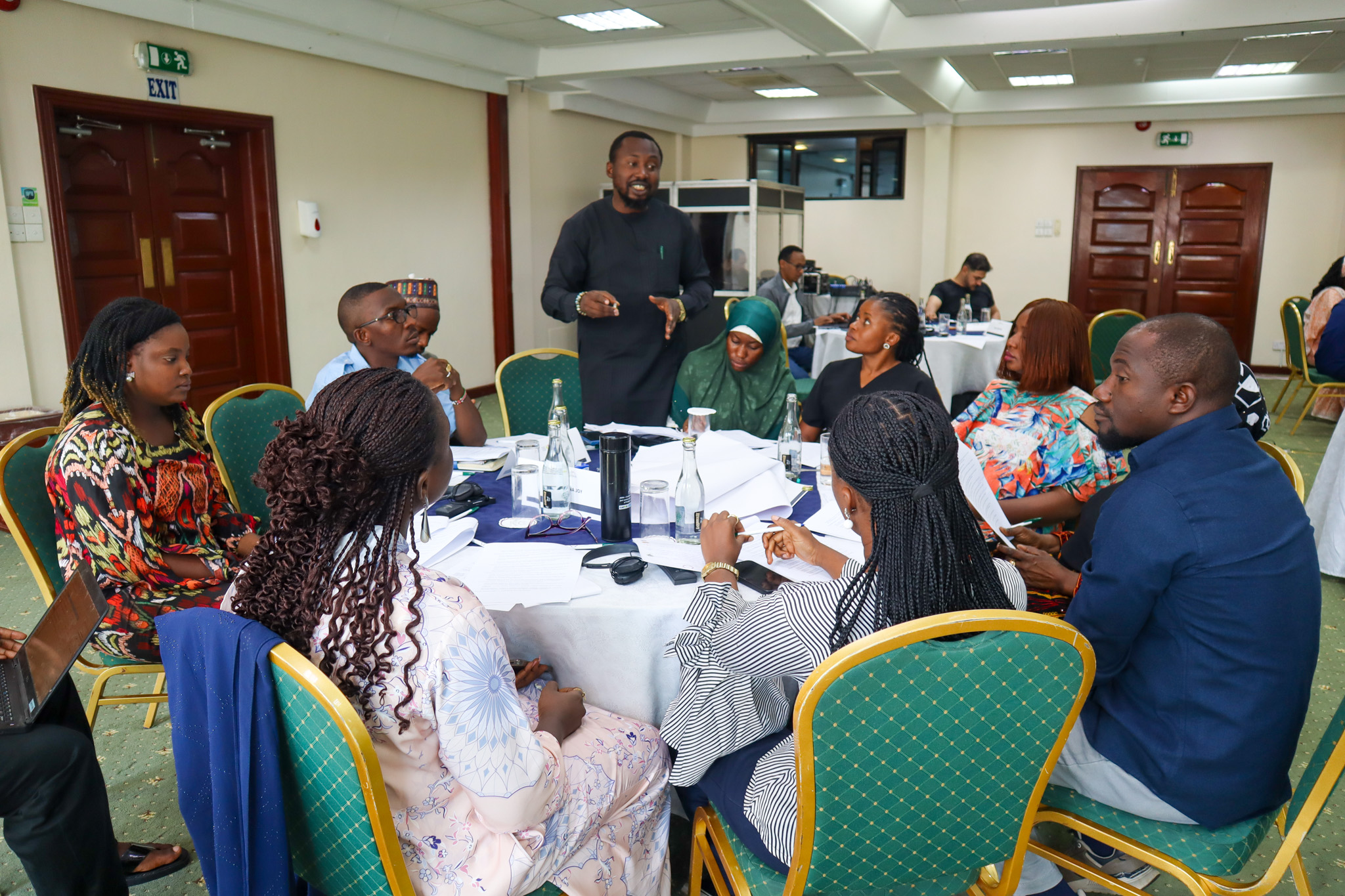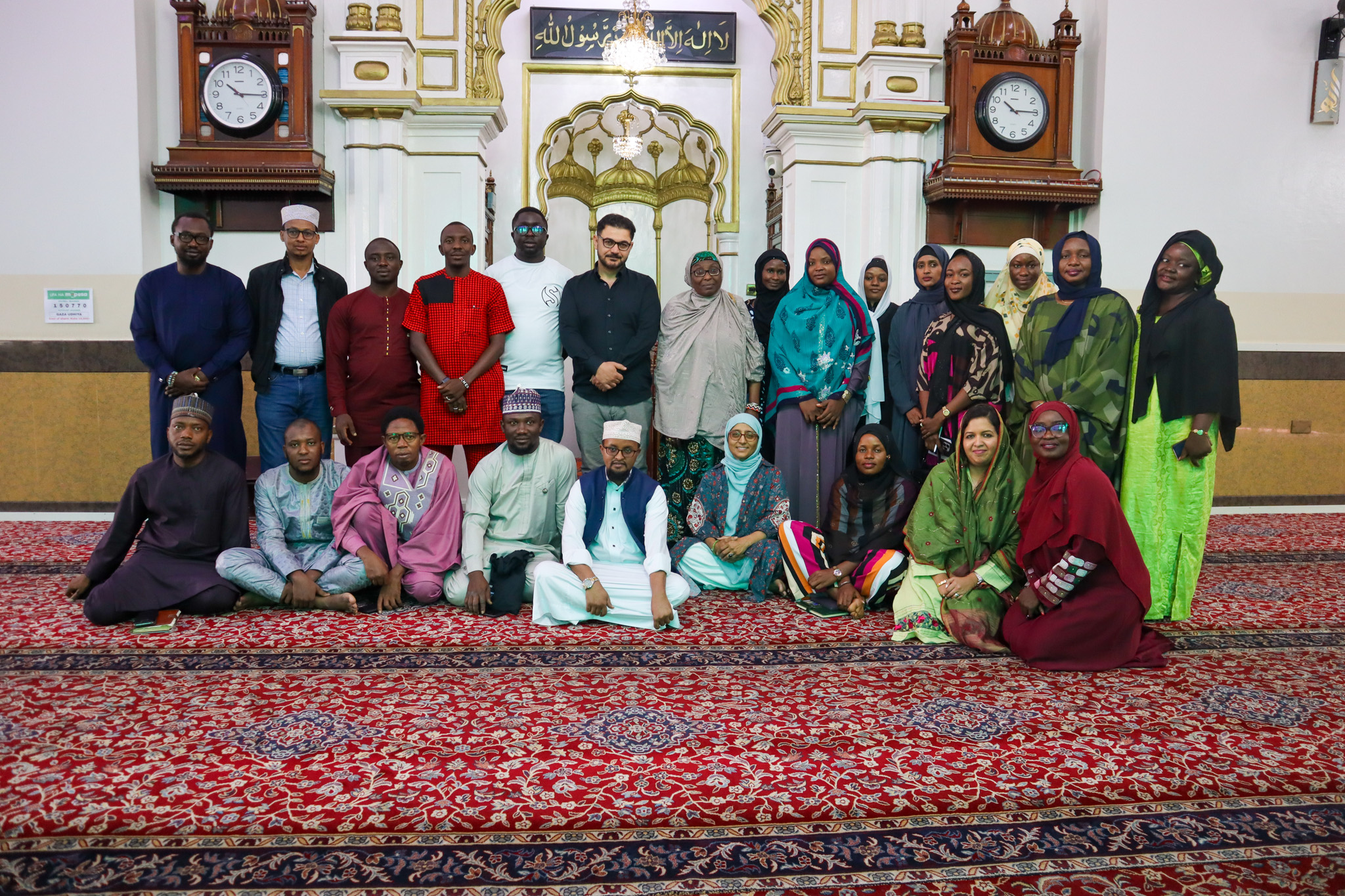Peacemakers Network Hosts Regional Training in Nairobi to Promote Religious Freedom Through Islamic Principles
JISRA Project

Group photo of participants and facilitators at the JISRA FoRB training. 2025.
Eighteen religious actors and peacebuilders from Kenya, Nigeria, and Mali gathered in Nairobi from May 26 to 29, 2025 for a regional training on Islam and Freedom of Religion and Belief (FoRB), organized by the Network for Religious and Traditional Peacemakers (Peacemakers Network). The week-long workshop deepened participants’ understanding of Islamic theology and its role in advancing FoRB and peaceful coexistence across Africa and globally.
The training was organized as part of the ‘Joint Initiative for Strategic Religious Action’ (JISRA) project, supported by the Ministry of Foreign Affairs of the Netherlands and coordinated by Mensen met een Missie. The training formed part of a five-year effort of the project to strengthen faith literacy and foster interfaith harmony in communities affected by religious tensions.

Participants engaging in JISRA training, day 3. Nairobi, Kenya. 2025.
The JISRA consortium is an interfaith and secular partnership promoting FoRB. Comprised of Catholics, Confucian, Hindu, Islamic, and Orthodox partners, the consortium works with partners in Ethiopia, Indonesia, Iraq, Kenya, Mali, Nigeria, and Uganda to support and empower religious leaders with knowledge and skills to become agents of change in their respective contexts as promoters of FoRB. The Peacemakers Network provides technical expertise, advice, and support to the JISRA consortium and partners on Islamic theology, faith literacy, and perspectives on FoRB. Towards this, the Peacemakers Network has organized trainings, consultations, and regularly convenes Communities of Practice (CoP) on Islam and FoRB.
The Islam and FoRB training helped participants to recognize the internal diversity and pluralism from an Islamic perspective, distinguish prescriptive statements made by Muslim religious leaders from descriptive or analytical statements, understand how different Islamic schools of thought have shaped, and are shaped by, the experiences and histories of individuals, communities and countries, and interpret how religious expressions use cultural symbols and artistic representations of their times and contexts.
The training was facilitated by Dr. Mohamed Elsanousi, Executive Director of the Peacemakers Network, and Afeefa Syeed, Director of the Centre for Innovative Religious Education. Sheikh Ibrahim Lethome, Secretary General of the Centre for Sustainable Conflict Resolution also presented about the Kenyan context on FoRB and religious minorities in Kenya.
“This training is part of a broader programme and efforts to increase understanding and promote peaceful dialogue rooted in Islamic theology. We are deeply grateful to the Ministry of Foreign Affairs of the Netherlands and the Dutch people for their continued support.” –Dr. Mohamed Elsanousi, Executive Director of the Peacemakers Network
The training addressed critical gaps in religious literacy, particularly in regions where religion has been manipulated to justify conflict or discrimination.
“In areas where religion has been misused for harmful practices and xenophobia, this FoRB training is vital. Understanding other faiths fosters respect and helps prevent conflict.” –Dr. Mustafa Yusuf Ali, Executive Director of Arigatou International
Participants explored how Islamic teachings align with international frameworks like the Marrakesh Declaration, which upholds the rights of religious minorities in Muslim-majority countries.
“People often assume that Islam and religious freedom are incompatible. This training dismantles that myth by highlighting Islamic principles that promote respect and coexistence.” –Afeefa Syeed, Director of the Center for Innovative Religious Education
The training also incorporated a session on spiritual reflections to support the emotional demands of peacebuilding. For participants like Dr. Sumaye Hamza, Deputy National President of the Federation of Muslim Women Association in Nigeria, it offered fresh insights:
“allowing me to see the relevance of the Prophet’s last sermon today and how the Marrakesh Declaration can guide us. These resources exist–we just need to apply them for the common good of humanity.”
Ahmed Zangana, Project Coordinator for Mensen met een Missie, emphasized that such efforts are only the beginning:
“having the Peacemakers Network as part of this consortium adds immense value. This initiative is already showing outstanding results, but we need to engage more stakeholders to expand its reach and impact.”
As part of the training, participants visited Jamia Mosque in Nairobi, the oldest and largest Mosque in the city. The participants were received by the Mosque officials who shared about the history of the Mosque, the structure of the Muslim organizations in Kenya, how the prayer sessions are conducted, and how the Mosque promotes interfaith engagement and community outreach. The visit was a true display of interfaith, harmony, and understanding. For many participants, it was their first visit to a mosque.
The participants also had the opportunity to visit the Interreligious Council of Kenya (IRCK), a JISRA partner in Nairobi. During the visit, they received a presentation on IRCK’s structure, activities, and programs across Kenya. Additionally, the participants had the opportunity to engage with women religious leaders. As part of IRCK’s Women of Faith Initiative, they support interfaith and community development activities in Embakasi, Nairobi.
The training provided participants with a platform to gain a deeper understanding about Islam and religious freedom by drawing on verses from the Quran, Hadiths, the Sunnah of the Prophets, and verses from the Bible. Participants shared that the training helped to clear religious misunderstandings through contextual theology.
Further, the training provided a safe space for sharing local, regional, and global experiences. Participants shared with each other about their unique challenges and successes in their respective communities and religions. This open dialogue fostered mutual understanding and empathy, highlighting the importance of creating such spaces in our peacebuilding efforts.
To learn more about the day-to-day experience during the training, read from Ustaz Adam Abdulrahman and Dr. Sumaye Fadimatu’s perspective.

Particpants visit to Kenya National Mosque (Jamia Mosque). 2025.
About the JISRA Project
The Joint Initiative for Strategic Religious Action (JISRA) is a partnership of 50 civil society organizations based in Ethiopia, Indonesia, Iraq, Kenya, Mali, Nigeria, and Uganda (with supporting lobby and advocacy in Europe and the USA). This international, inter religious partnership is implementing a five-year program (2021-2025) in partnership with the Dutch Ministry of Foreign Affairs, to further peaceful and just societies where all enjoy Freedom of Religion and Belief (FoRB).
The program is coordinated by four international consortium partners: Mensen met een Missie Tearfund UK, Tearfund the Netherlands, Faith to Action Network, Search for Common Ground, and the Network for Religious and Traditional Peacemakers.
Follow the Peacemakers Network on social
